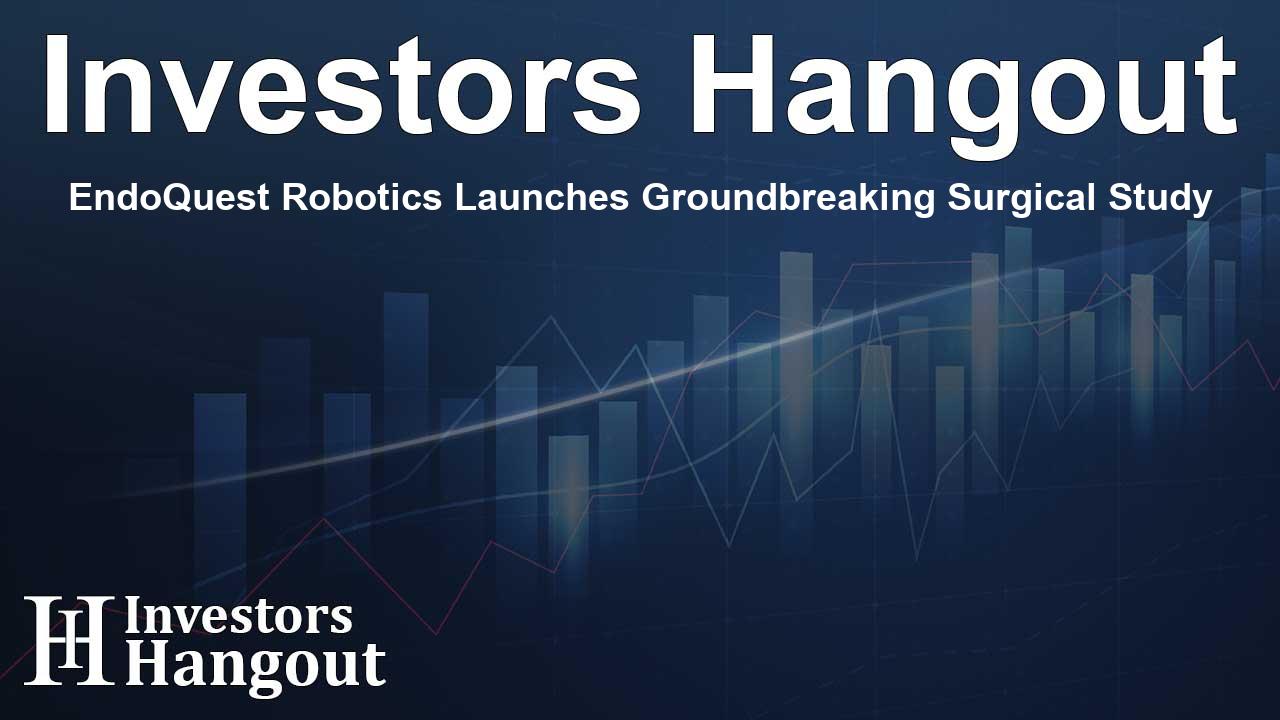EndoQuest Robotics Launches Groundbreaking Surgical Study

Overview of EndoQuest Robotics' Groundbreaking Clinical Trial
EndoQuest Robotics, Inc. has made significant strides in the field of surgical technology with the recent completion of the first procedures in their pivotal clinical trial, Prospective Assessment of a Robotic Assisted Device in Gastrointestinal Medicine (PARADIGM). These procedures utilize the EndoQuest Endoluminal Surgical (ELS) System, aiming to address colorectal lesions with less invasive methods.
First Robotic Procedures Showcase Potential
Under the skilled hands of Dr. Eric Haas, Chief of Colorectal Surgery, the trial began with two colorectal endoscopic submucosal dissection (ESD) procedures. One of the focal points of these operations was a challenging fibrotic lesion exceeding 5 cm in size. Dr. Haas's extensive experience has positioned him as a leader in the robotics field, ensuring a high standard of clinical expertise during the trial.
Significance of the PARADIGM Trial
This groundbreaking study is not just about new technology; it's a commitment to improving patient outcomes through innovative medical practices. The trial is designed to assess the safety and effectiveness of the ELS System in removing colorectal lesions, a procedure crucial for patients facing complex gastrointestinal issues. The participation of fifty subjects across five prestigious healthcare institutions in the U.S. highlights the trial's importance in the medical community.
EndoQuest's Vision for Future Surgical Procedures
Eduardo Fonseca, the Interim CEO of EndoQuest Robotics, emphasized the company's mission to revolutionize surgical practices with less invasive approaches. The completion of these initial procedures marks a milestone towards achieving that vision, as they pave the way for future advancements in gastrointestinal care.
Challenges Addressed by the ELS System
Dr. Todd Wilson, Chief Medical Officer, addressed some of the challenges in adopting ESD techniques in the U.S., citing technical difficulties that have limited their use. The ELS System aims to lower these barriers significantly, potentially expanding the number of physicians capable of performing this minimally invasive technique. This shift could lead to a reduction in more invasive surgeries, benefitting a vast number of patients.
The Innovative Technology Behind ELS System
The ELS System represents a significant leap in endoluminal surgery, combining the flexibility of traditional endoscopy with the precision of robotic systems. This integration allows surgeons to perform complex procedures through natural orifices, eliminating the need for external incisions. Such advancements not only promise to improve recovery times for patients but also enhance surgical accuracy.
Aiming for Market Authorization
Following the completion of the PARADIGM trial, EndoQuest Robotics plans to submit a De Novo request to market the ELS System in the United States. The successful results of this trial could be instrumental in gaining the necessary approvals and making this innovative technology available to healthcare providers across the country.
A Closer Look at EndoQuest Robotics
EndoQuest Robotics has established itself as a pioneer in developing robotic technologies aimed at improving gastrointestinal (GI) medicine. Their approach focuses on enhancing surgical access and precision, allowing physicians to address unmet needs effectively. Collaboration with healthcare experts and researchers has been key to evolving their flexible robotic system, demonstrating a commitment to improving patient care through groundbreaking solutions.
Contact Information for Media Inquiries
If you wish to learn more about EndoQuest Robotics and their innovative work in endoluminal robotics, you can reach out via media contact:
Media Contact:
Lisa Owens
The Mullings Group
lowens@mullingsgroup.com
+1-210-601-6647
Frequently Asked Questions
What is the PARADIGM trial about?
The PARADIGM trial evaluates the safety and effectiveness of the EndoQuest ELS System in robotic ESD procedures for colorectal lesion removal.
Who performed the first procedures in the trial?
The first ESD procedures were performed by Dr. Eric Haas, a prominent figure in colorectal surgery.
What are the goals of EndoQuest Robotics?
EndoQuest aims to revolutionize surgical practices by enabling less invasive and more effective approaches to surgery.
What are the benefits of the ELS System?
The ELS System allows for precision in surgical tasks that currently cannot be achieved in advanced therapeutic endoscopy, enhancing access to complex surgical areas.
How many healthcare institutions are involved in the trial?
Five leading healthcare institutions in the United States are participating in the trial.
About The Author
Contact Henry Turner privately here. Or send an email with ATTN: Henry Turner as the subject to contact@investorshangout.com.
About Investors Hangout
Investors Hangout is a leading online stock forum for financial discussion and learning, offering a wide range of free tools and resources. It draws in traders of all levels, who exchange market knowledge, investigate trading tactics, and keep an eye on industry developments in real time. Featuring financial articles, stock message boards, quotes, charts, company profiles, and live news updates. Through cooperative learning and a wealth of informational resources, it helps users from novices creating their first portfolios to experts honing their techniques. Join Investors Hangout today: https://investorshangout.com/
The content of this article is based on factual, publicly available information and does not represent legal, financial, or investment advice. Investors Hangout does not offer financial advice, and the author is not a licensed financial advisor. Consult a qualified advisor before making any financial or investment decisions based on this article. This article should not be considered advice to purchase, sell, or hold any securities or other investments. If any of the material provided here is inaccurate, please contact us for corrections.
